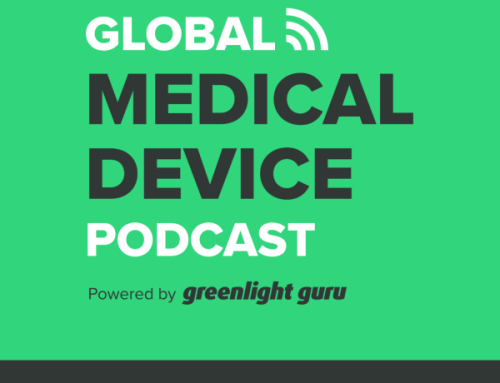Implementing the Consiliso architecture and principles has proven, in all companies in which it exists, to not only improve efficiency and compliance, but foster an improvement in company maturity.
What is maturity, when applied to a company? Simply, it is a quantifiable measure of how consistently and efficiently a company operates, and how well it is able to identify and meet its key process metrics.
The FDA recently announced its “Voluntary Medical Device Manufacturing and Product Quality Program” pilot program as part of their Case for Quality initiative with MDIC (Medical Device Innovation Consortium). The FDA has committed to reducing the frequency of regular inspections and is adding other incentives for program participants. Participants undergo assessments from CMMI against their Maturity Model specifically geared to medical device manufacturers.
Consiliso’s founder, Mark Rutkiewicz, has worked closely with MDIC and the CMMI Institute during the development of the pilot program. As Vice President of Quality for Innovize, Mark invited the FDA and CMMI to test the new assessments at Innovize, which occurred in 2016. Innovize is currently in the first group of medical device manufacturers to enter the new pilot program.
“The assessments are very different from inspections,” said Rutkiewicz. “While the FDA was there to observe how the CMMI Maturity Model can be applied and help a company with compliance as well as continuous improvement, they had agreed not to investigate anything found. We did not use a ‘back room’ and it was a much more open, exploratory process that revealed issues management previously hadn’t seen before. Since we implemented Consiliso, I wasn’t concerned about what the FDA would see—we have a very open architecture for all our information. The exercise helped build confidence with the FDA that any company in the program would definitely become aware of deficiencies in their processes. It’s an important tool for continuous improvement, which is what the FDA wants to see.”
Going forward, the FDA will not be present during assessments—they agreed to only review high-level summary data. The program does not require you to achieve a specific maturity level; instead, it requires that you stay on the improvement journey in order to receive the incentives.
After the assessments, CMMI grades the company on their capability at a specific maturity level. Level 1 represents a chaotic organization with no real defined processes or procedures—a “tribal knowledge” culture subject to too much variation in outputs. Level 3 represents a company with defined policies, processes and procedures, with solid training of workers to perform their roles. Level 5 companies proactively assess and manage all of their business and product processes using the most applicable metrics. To learn more about the CMMI model, visit: cmmiinstitute.com/MedicalDevice.
“What’s interesting is that this joint industry/FDA endeavor is going live right when my book [Consiliso: The Blueprint for Integrating Business Processes in Medical Device Companies] is nearly complete,” said Rutkiewicz. “Want to get to CMMI Level 5? I’ve written a detailed textbook for exactly how to do it.”
Rutkiewicz wrote the Blueprint textbook after leading multiple device companies to a higher level of process maturity over the last 30 years. The textbook will be available in the first quarter of 2018, and can be pre-ordered here.
As a speaker at the recent public forum for the FDA’s pilot program, Rutkiewicz stressed that medical device companies must define their business processes, and the CMMI assessments must examine the maturity of those processes. See his presentation here: The Maturity Model Journey.
The entire meeting is available on video via the FDA’s website. Mark’s talks is in Archive 3 (timestamp of his talk is 2:19:54 to 2:30:20).
For more information on how Consiliso provides the framework for achieving higher levels of maturity, or how the FDA’s Product Quality Program will work, contact the team at Consiliso.com.






